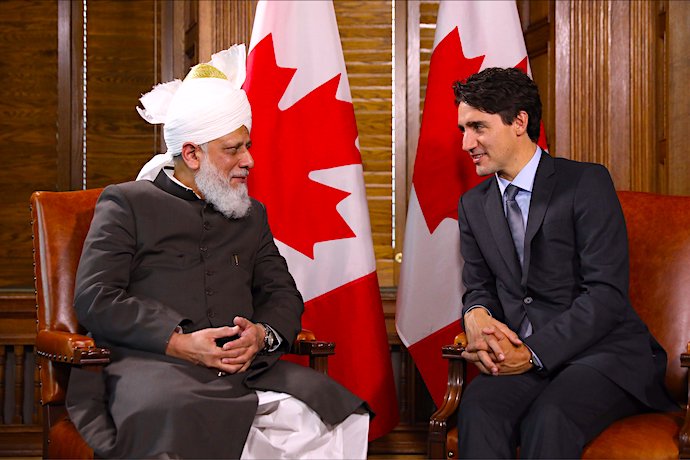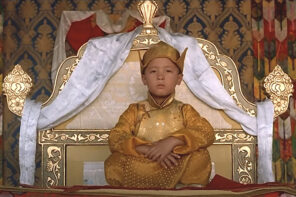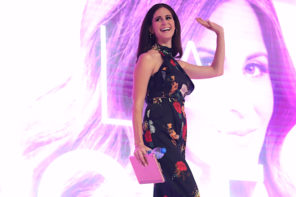Given that Western liberalism is defined by a desire for social and political equality, the tendency among liberals to support minority groups is both natural and in fact laudable. In practice, however, this can occasionally translate into blanket support for minority groups or leaders even when their actions undermine liberal ideas of social justice and equality. The reported attempts by leaders of the Ahmadiyya Muslim Community to keep victims of abuse silent perfectly illustrate the complex maze that liberals must navigate when attempting to support minorities while also staying true to their own ideals.
Ahmadis are easy to support as there are, arguably, few groups that can match their history of persecution. The Ahmadiyya Muslim Community (dubbed the Mormons of Islam by some) was founded by Mirza Ghulam Ahmad in Qadian, India in 1889 during the British Raj as an effort to reform Sunni Islam. Most traditional Muslim ulema declared Ahmadis kafir (i.e., non-Muslim, or heretics in Christian parlance) because Ahmad’s claim to prophecy after Muhammad was seen as violating the traditional belief in the finality of prophet Muhammad.
When the British left India in 1947, Ahmad’s son and successor (“Khalifa” in Arabic) moved the community’s headquarters to the Islamic state of Pakistan where, over time, the growth in political stature of Islamic parties translated into numerous anti-Ahmadi laws. Ahmadis were declared non-Muslims by the national parliament in 1974, and, in 1984, Ordinance-XX made it an offense for Ahmadis to even call themselves Muslims. It also forced the Ahmadi Khalifa to leave Pakistan for exile in the UK where he’s been based ever since.
Liberal and conservative politicians across the West have stood with Ahmadis to call on the government of Pakistan to end their state-sanctioned persecution. Many leaders have also met the Khalifa and showered him with public praise. In October 2016, Canadian Prime Minister Justin Trudeau welcomed the Khalifa to Ottawa and tweeted his picture with him.
“Your Holiness, your friendship and leadership is very important to Canada and we appreciate the way the Ahmadiyya Muslim Community condemns all forms of extremism.”
During a meeting with the Khalifa on June 27, 2012,* Speaker Pelosi said, “Leadership of Hazrat Mirza Masroor Ahmad is characterized by wisdom and compassion,” and that “His Holiness has refused to turn to bitterness or vengeance.”
Then, on January 8, 2022, The Daily Mail reported that a 44-minute audio recording had gone viral featuring a leaked conversation between an alleged rape victim and the Ahmadi Khalifa. In it, she bemoans the fact that the Khalifa has failed to hold a number of high officials accused of rape accountable for their actions. In response the Khalifa suggests that she either stay quiet or leave the Ahmadiyya Jama’at (i.e. the community) if she doesn’t trust his judgment.
How should liberal politicians (such as Canada’s Prime Minister Justin Trudeau and Speaker Nancy Pelosi), who’ve not only publicly met the Khalifa but have voiced clear support for him, as well as the media outlets (such as Huffington Post or the Independent), that have provided space to the official spokespersons of the Jama’at, respond to it?
On the one hand, they must be wary that shining any more light on this scandal will provide even more fodder for the virulently anti-Ahmadiyya Sunni propagandists abroad, where they’re often subject to discriminatory laws, and anti-Muslim and anti-immigrant right wing politicians at home. Staying quiet, on the other hand (especially following years of consistent public support for Ahmadi leadership), risks being seen as complicit in silencing victims of abuse.
While most Western liberal politicians and media outlets have chosen the silent route thus far, Pakistani liberals who are far more concerned with the persecution of Pakistani Ahmadis at home have bravely chosen to speak out. In a Twitter thread on January 13 and 14, a leading civil rights activist, M. Jibran Nasir (often called the “conscience of Pakistan”) wrote:
“More victims of sexual abuse within Ahmadi Community continue to speak against culture of silencing victims and protecting abusers adopted by the leadership of the community. One must hear the alleged audio recording between Nida Ul Nasser and Ahmadi Caliph… In the clip the Ahmadi Leader can be repeatedly heard advising the sexual abuse victim to stay quiet.”
Buoyed by this support, ordinary Ahmadis are speaking out in unprecedented numbers for the first time in Jama’at’s modern history. A letter signed by 136 Ahmadis, mostly women, asks Jama’at leadership to inform ordinary Ahmadis of what they’re doing to protect vulnerable populations and investigate allegations of abuse. It reads:
“we are cognizant that the Ahmadiyya Muslim Community is persecuted in many parts of the world. We also understand that—because of this persecution—any disconnect within the community has the ability to further embolden our oppressors. However, as our own campaigns recognize, Islam is a religion that advocates for freedom of conscience and speech, and also one that recognizes the pursuit of knowledge. We maintain that the right balance between both of these considerations requires a respectful, open and honest dialogue that protects the rights of all members.”
It took an extraordinary amount of courage for ordinary Ahmadis to speak up given the reported sanctions against those who say anything that’s not endorsed by the Jama’at leadership. Western liberal leaders must follow their lead and demand that the Jama’at leadership commit to zero tolerance for abuse and put in place policies and procedures universally adopted by organizations that deal with vulnerable populations, including background screening & fingerprinting of all those who deal with vulnerable populations; training for all officials to recognize signs of abuse; and a policy requiring all officials to report any allegations of abuse to appropriate civil authorities.
Abuse, victim shaming, and rape culture don’t have a religion. The written tenets of the Ahmadiyya Muslim faith don’t condone any kind of abuse, whether it be sexual, emotional, spiritual, verbal, or physical. There’s simply no reason not to put in place policies and procedures that are known to protect vulnerable populations.
Prophet Muhammad (peace be upon him) is reported to have said, “the word of wisdom is the lost property of the believer, so wherever they find it, they are most deserving of it.” In other words, the fact that these guidelines were first developed in the West shouldn’t prevent Ahmadis from adopting them.
Ahmadi children expect and deserve an abuse-free environment. Liberals around the world need not choose between protecting a minority religion and the children within it. By supporting those who are speaking out and by speaking out themselves they can not only do right by the children, but also by their liberal commitments as well.
*This meeting date has been corrected. RD regrets the error.





